Agriculture and Forestry Minister Ibrahim Yumaklı emphasized the country’s strengthened efforts to manage and respond to forest fires amid rising global risks linked to climate change and human activity.
Recently, severe wildfires broke out in several provinces, Bursa in northwestern Türkiye, Sakarya and Bilecik in the Marmara region and Izmir in western Türkiye. In Bursa, fires near the Gürsu and Kestel districts led to evacuations and temporary highway closures. Fires in Sakarya and Bilecik threatened residential areas before being brought under control.
Izmir saw the most extensive damage, with fires spreading rapidly across forested and residential zones. Over 50,000 people were evacuated, and hundreds of homes were destroyed. The extreme heat wave and strong winds contributed to the fire’s severity.
Speaking during a program broadcast on TRT Haber on Wednesday, Yumaklı shared the latest developments regarding wildfires across the country. He reported that since their last update, 69 fires had erupted in different parts of Türkiye, 67 of which have already been extinguished and brought under control.
Cooling efforts are ongoing in those areas, and currently, two fires remain active, one in the Hocalar district of Afyon and another in Tavas, Denizli. He assured the public that these remaining fires do not pose any immediate threat to residential areas or vital infrastructure.
Türkiye has a total of 23.4 million hectares of forest land. According to Yumaklı, only 0.11% of this area has burned so far in 2024. When expanded to the five years from 2020 to 2024, the burned portion rises to 0.18%, which he attributed to the unusually large-scale wildfires experienced in 2021 and subsequent years.
He noted that when comparing Türkiye’s forest fire statistics with those of other countries in the same region, the country fares considerably better, excluding France. Italy, which has 11.1 million hectares of forest, saw 0.36% of its forests burn in 2024 alone and 0.74% over the past five years.
In contrast, Türkiye lost only 0.11% this year and 0.18% over the same five-year period. In Portugal, 2.18% of forest areas burned in 2024, and 1.15% from 2020 to 2024. Yumaklı stressed that a global perspective reveals Türkiye’s forest protection record remains relatively strong.
He drew attention to global trends, emphasizing that the world is facing a rapid acceleration in forest loss. Between 2002 and 2012, 44 million hectares of forest were burned worldwide.
That figure more than doubled in the following decade, increasing to 94 million hectares between 2013 and 2023. Yumaklı attributed this sharp rise to the effects of climate change, stating that the past nine years have been the hottest on record since 1880. He cited U.N. projections indicating that forest fires are expected to increase by 14% by 2030 and by 30% by 2050.
He also explained how Türkiye has been affected by drought and extreme heat. Last year, he noted, was both the hottest summer in a century and the driest summer in the past decade.
Yumaklı presented maps that tracked drought conditions across Türkiye, showing increasingly dangerous zones in black and red. He clarified that black areas on the map represent “extraordinary drought” zones and reflect serious environmental stress.
According to Yumaklı, 96% of forest fires in Türkiye are either directly or indirectly caused by human activity. Comparing the data from January to July 2023 and 2024, he reported a modest increase in the number of wildfires.
Last year, there were 4,268 fire incidents, with 2,209 occurring outside forests and 2,059 within forested areas. This year, the number rose to 4,477 fires, including 2,549 in non-forested areas and 1,928 in forests.
He highlighted that more than half 57% of this year’s fires began outside of forests and were extinguished before they could spread. Another 30% of fires started outside and eventually reached forests, while 13% began within forested areas.
Overall, 43% of wildfires directly affected forest land, while 57% were successfully contained before causing forest damage.
Yumaklı also addressed Türkiye’s firefighting capacity, saying the country now has the strongest air and ground fleet in its history. He explained that the use of aerial vehicles, such as planes and helicopters, depends on geographical conditions and that they are not alternatives but complementary tools in the firefighting arsenal.
Among the resources available are five night-vision helicopters, which were also used in 2023. He explained that night operations are highly complex and are only carried out when human lives, settlements or critical infrastructure are under immediate threat.
Challenges such as power lines and elevated terrain make night flying dangerous, and Yumaklı emphasized that Türkiye follows international best practices in how it deploys its night-flying resources.
Looking ahead, he announced that the government will continue to expand its aerial firefighting fleet. Türkiye currently operates Air Tractor planes capable of dropping 3 tons of water each. The country has taken delivery of 12 aircraft and plans to acquire eight more by 2027, bringing the total to 20.
Responding to criticism about reforestation practices following wildfires, Yumaklı stressed that afforestation is carried out by the natural vegetation specific to each region.
He rejected the claim that burned areas are being uniformly replanted with pine trees, calling this a misconception. To promote transparency and public involvement, he invited all citizens to visit reforested zones on Nov. 11, during Türkiye’s National Afforestation Day and observe the work being done.
In a separate development, Ali Erbaş, head of the Presidency of Religious Affairs (Diyanet), announced a nationwide prayer initiative to be held before the night prayer at Türkiye’s 90,000 mosques. In a social media statement, Erbaş invited the public to join in prayers for protection against wildfires, relief from drought and safety from all kinds of natural disasters, as well as in remembrance of the country’s martyrs.
“Let’s all join in prayer from our mosques and balconies,” he wrote. “May Allah accept our prayers.”

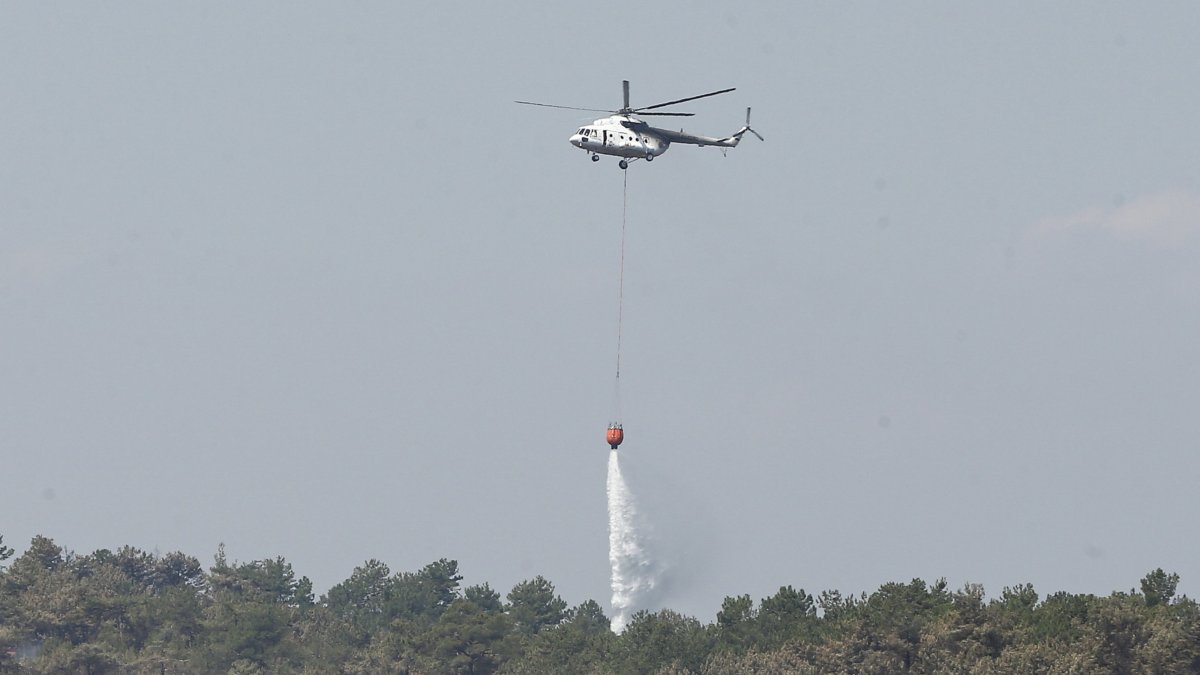
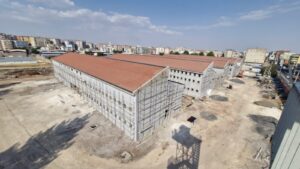
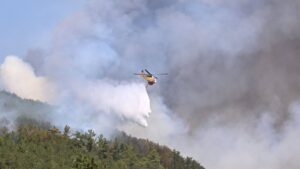




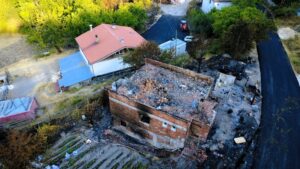



























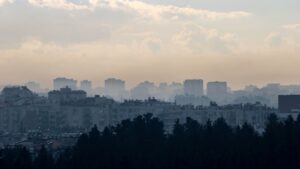
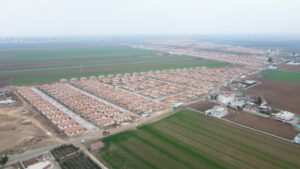








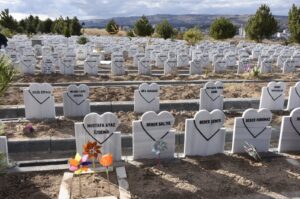





Be First to Comment